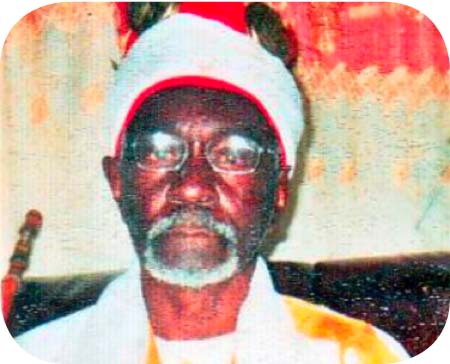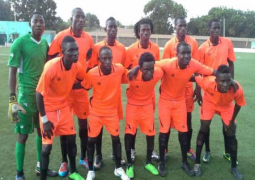
This followed the submission of the motion by the defence team led by senior counsel Antouman Gaye and the reply by the state counsel.
When the case was called, lawyer Antouman Gaye told the court that his client, the first appellant, was not in court due to ill-health and showed the court the medical certificate.
Counsel Gaye further told the court that they have a motion pending before the court, dated 17 September 2014.
The defence counsel said in that motion they prayed for a stay of proceedings at the magistrates’ court pending the hearing of the appeal.
Counsel recalled that at the Brikama Magistrates’ Court, after the evidence of the first prosecution witness, the defence applied for the lower court to stay proceedings, and refer the matter to the Supreme Court of The Gambia for interpretation.
The application was turned down by the magistrate on the basis that his court has jurisdiction to hear the case.
The magistrate added that he would not stay proceedings on the matter until he received an order from the high court, counsel added.
The appeal filed is an important one for the constitutional rights of the appellants, as section 127 of the 1997 Constitution stated clearly that the lower court must stay proceedings when an appeal has been filed at the superior court, the senior counsel stated.
The constitution makes it incumbent on any lower court to stay proceedings without giving it any discretion, he said, adding that the appellants were charged with two counts, including ‘disobedience to a lawful order.’
“The charge sheet is not an exhibit before this court, but it has been incorporated in the motion of appeal,” counsel went on, further stating that Section 25 (C) of the 1997 Constitution of The Gambia guarantees “freedom to practice any religion and to manifest such practice”.
“In the absence of any counter affidavit, I urge this court to order the Brikama Magistrates Court to stay proceedings with this matter and urge the court to grant this application,” the defence counsel continued.
In response, state counsel A. Jallow said the state has responded with a three-paragraph affidavit of opposition to the summons filed on 21 October 2014, and intended to rely on all the affidavits, he said.
The application to stay proceedings has cited no substantial circumstances in law on the basis of which the court should grant and pass the case to the Supreme Court for interpretation.
“Since jurisdiction is not an issue in the lower court, I shall rest my argument on the referral of the case,” state counsel Jallow said.
Section 127 of the Constitution is not merely talking about the accused persons constitutional rights, but has to be based on a condition of ambiguity for interpretation.
The reason for the appeal was to delay the proceedings at the lower court, state counsel added.
However, the trial judge reminded the state counsel that the appeal before him was not praying for the referral of the matter (to the Supreme Court) but for a stay of proceedings at the lower court.
The state counsel then said there was no substantial circumstance to warrant a stay of proceedings in the case at the lower court.
The case was adjourned to 3 December 2014, for ruling on the defence application.
Read Other Articles In Article (Archive)
World Social Forum gains momentum
Feb 9, 2011, 1:09 PM
Rights of EU Senegambians in the UK guaranteed
Mar 10, 2020, 3:04 PM


